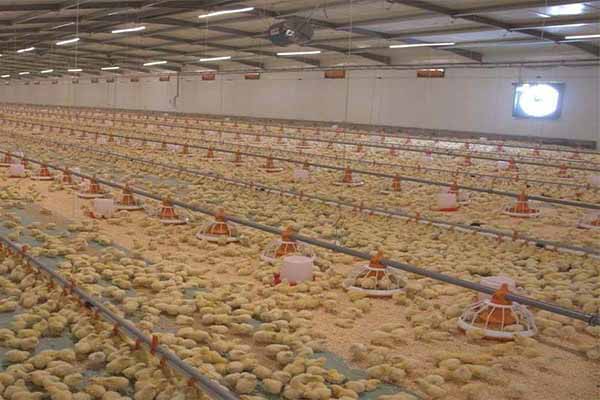The Impact of Temperature Control on Egg Production in Tanzanian Chicken Farms
Time : 2025-07-26
Temperature control is a critical factor in the success of any chicken farm, especially in regions like Tanzania where the climate can be challenging. As a leading manufacturer of poultry equipment from China, Livi Mechanical Equipment understands the importance of maintaining optimal conditions for egg production. In this article, we’ll delve into how temperature control impacts egg production in Tanzanian chicken farms and offer some practical solutions to enhance productivity.
Introduction to Temperature Control in Chicken Farms
Temperature is one of the most significant environmental factors that affect chicken health and egg production. Chickens are sensitive to temperature changes, and extreme temperatures can lead to stress, reduced egg production, and even mortality. In Tanzania, with its diverse climatic conditions, managing the temperature in chicken farms is crucial for maintaining high productivity.
The Importance of Temperature in Egg Production
1. Egg Production Rate
The rate at which chickens lay eggs is directly influenced by the temperature. Research has shown that the ideal temperature for egg production is between 18°C and 23°C (64°F to 73°F). When the temperature falls below this range, chickens may slow down their laying rate. Conversely, temperatures above this optimal range can lead to a decrease in egg production.
2. Egg Quality
Temperature also plays a vital role in egg quality. High temperatures can cause the albumen (egg white) to become watery, and the yolk to become runny, resulting in lower-quality eggs. Conversely, low temperatures can lead to the production of small, underweight eggs.
3. Chicken Health
Maintaining a stable temperature is essential for the overall health of the chickens. Extreme temperatures can stress the birds, weaken their immune systems, and make them more susceptible to diseases. This, in turn, can lead to increased mortality rates and lower egg production.
Challenges in Tanzanian Chicken Farms
Tanzania’s diverse climate poses unique challenges for chicken farmers. The country experiences hot and humid weather, especially during the long rains from March to May and the short rains from November to December. These conditions can lead to rapid temperature fluctuations, making it difficult to maintain a stable environment for the chickens.
Solutions for Effective Temperature Control
1. Insulation
Proper insulation is crucial for maintaining a stable temperature in chicken houses. Livi Mechanical Equipment offers a range of insulation materials that can be used to keep the heat inside during the colder months and reflect the sun’s rays during the hotter months.
2. Ventilation Systems
Ventilation systems are essential for controlling the temperature in chicken houses. Livi’s ventilation systems are designed to ensure a constant flow of fresh air while minimizing heat loss. This helps to maintain the ideal temperature range for egg production.
3. Climate Control Units
Livi Mechanical Equipment provides advanced climate control units that can be used to regulate the temperature in chicken houses. These units can be adjusted to maintain the desired temperature, regardless of the external climate conditions.
4. Smart Monitoring Systems
Integrating smart monitoring systems into chicken farms can help farmers keep a close eye on the temperature and other environmental factors. Livi’s monitoring systems provide real-time data, allowing farmers to make informed decisions and take immediate action if temperature fluctuations occur.
Case Study: A Successful Implementation in Tanzania
One of our clients in Tanzania, a large-scale chicken farm, faced significant challenges with temperature control. By implementing Livi’s insulation, ventilation, climate control units, and smart monitoring systems, the farm was able to maintain a stable temperature throughout the year. As a result, the farm’s egg production increased by 20%, and the overall health of the chickens improved.
Conclusion
Temperature control is a critical factor in the success of chicken farms in Tanzania. By investing in the right equipment and strategies, farmers can maintain optimal conditions for egg production, improve chicken health, and increase profitability. Livi Mechanical Equipment is committed to providing high-quality poultry equipment that helps farmers overcome the challenges of temperature control and achieve their production goals.
Tags












